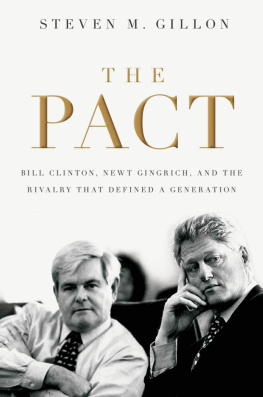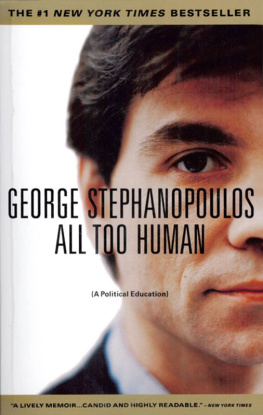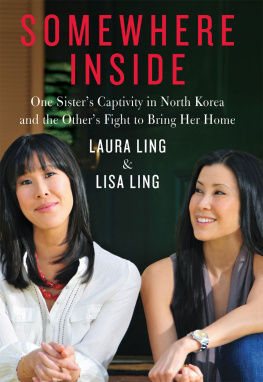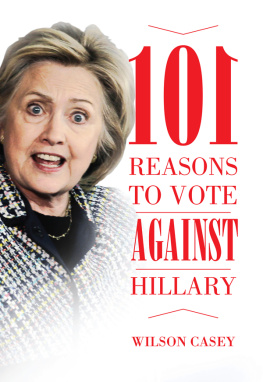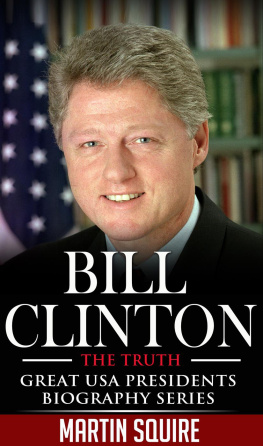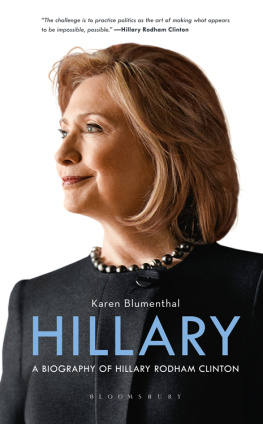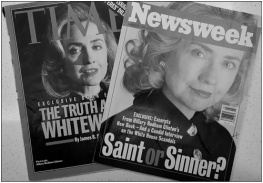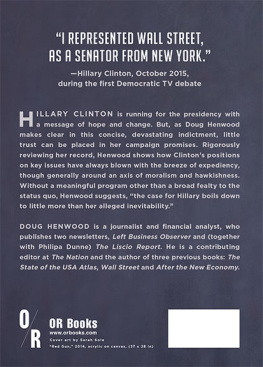
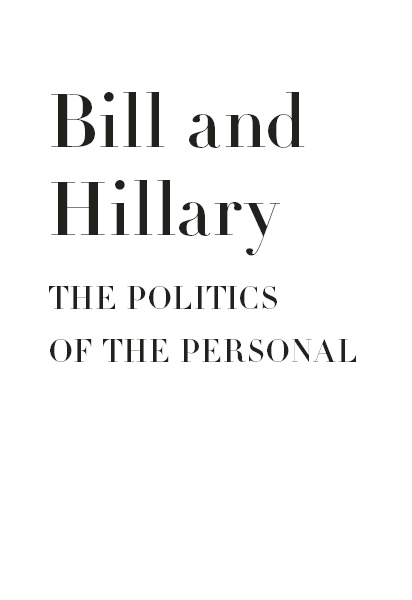
The author and publisher have provided this e-book to you for your personal use only. You may not make this e-book publicly available in any way. Copyright infringement is against the law. If you believe the copy of this e-book you are reading infringes on the authors copyright, please notify the publisher at: us.macmillanusa.com/piracy.
FOR LORNA, WHO HAS BEEN THERE FOR THE WHOLE JOURNEY
Contents
Preface
At first glance it might seem strange that I am writing this book. I started off as a womens historian, writing primarily about the experience of housewives and working women, the suffrage movement, and the impact of the Great Depression, World War II, suburbanization, and latter-day feminism on different groups of women. Hand in hand with that, I pursued a commitment to tell the story of the civil rights struggle from the bottom up, using community studies of ordinary peoplenot heroes or heroinesto fathom the persistent struggle for social equality among black Americans. But at the foundation of all this was a belief, nurtured by growing up in a socially conscious church, that individuals could make a difference by engaging in the cause of social justice.
One theme running throughout my work is the tension between reform and radicalism in movements for social change. I came of age in the 1960s, when a generation changed every two years. Had I been born a few years later, I would have become a radical. But as it was I grew up with a belief that one could create change by working within the system, not by trying to overthrow it. Still, I was fascinated by the hairs-edge difference between being an ardent reformer and a confirmed radical. How far could a reformer push the envelope before it broke open?
To better understand that conundrum I undertook my first biography, a study of the quintessential liberal reformer Allard K. Lowenstein. As a leader of the National Student Association, Lowenstein became the young activist who first thought of bringing white civil rights supporters to Mississippi for the Freedom Vote campaign of 1963. He then moved on to become the architect of the Dump Johnson campaign of 196768. Lowenstein personified the dilemma I was trying to understand. How did a liberal construct his world? What stopped him from becoming a radical? When I started the biography, I had no idea of the tortured personal roots of Lowensteins choice to become a liberal crusader. Only when I got inside his life did I discover how profoundly his personal experiences shaped his public life. The principal reasons that Lowenstein pursued his peripatetic lifestyle of reform activism went back to his ambivalence about being Jewish, his anguish after discovering that his real mother had died when he was one, and, above all, the realization that he was attracted sexually to boys. It was from these personal experiences that he could never stop runningaway from the truth about himself, toward hopping the next airplane and taking on the next crusade. That insight provided the book with its title.
So it turns out that there is a line that directly connects a scholar passionately committed to studying issues of race and gender equality from the bottom up and a scholar who writes about the private motivations of individual men and women and how their private experiences end up shaping their political activities and public lives. It seems appropriate that Bill and Hillary Clinton came to political consciousness and maturity in the same decade I did, with the same focus on race and equality. And that subsequently, the struggle for womens liberation played a central role in their lives, as it did in mine and that of my family. Thus there is a logic to this journey, a roundedness. And rather than being strange, it seems natural to be writing this book about the politics of the personal.
William H. Chafe
Georgetown, Maine
Introduction
In the 1960s, the womens liberation movement introduced a new phrase into the national vocabulary: The personal is political.
The slogan had its origins in thousands of consciousness-raising groups around the country where women talked about growing up in a society full of sex stereotypes. Cultural norms defined what was feminine behavior and what was masculine; what women could do, what men could do; how life could be compartmentalized into gender-labeled categories. American life was full of such categories. What was public differed from what was private. Political issues defined one arena of life experience. Personal issues occupied a totally different realm.
Feminists disagreed. What went on in the bedroom or the kitchen, they pointed out, reflected patterns of power that pervaded Wall Street and the government as well. The tone of voice one adopted, the household roles one played, the assertiveness or passivity one displayedall of these reflected a deeper truth: that the private and the public, the personal and the political, were connected. Who did what around the house spoke to a larger system of how power was apportioned, what opportunities did or did not exist. The conclusion feminists drew from this was simple and revolutionary: If relations between women and men were to change, everything had to change.
Since the 1960s we have learned to translate the insight of feminists into a larger understanding of what defines history, and of what animates politics. Public figures are shaped by private experiences. Their political behavior reflects personal values and choices as well as issues of public policy. Personal experiences infuse and inspire the choices that political figures make. What goes on in the family where a child grows up helps define in fundamental ways how that child responds as an adult to moments of political or moral crisis.
By now that insight has extended into our study of people in power. We know that understanding the presidency of Franklin Delano Roosevelt requires understanding his relationship with his mother, his aristocratic roots, his marriage to Eleanor Roosevelt, and perhaps above all his experience of being a victim of polio. Similarly, we cannot understand Eleanor Roosevelt without knowing about her alcoholic father, her experience of intellectual awakening in an English boarding school under the tutelage of a strong feminist, her engagement in social activism through networks of women reformers, and the crisis of her learning of her husbands infidelity. The personal is political. The private and the public are deeply connected. Wives affect husbands, and husbands wives.
This book is about two people who even more than Eleanor and Franklin speak to the intersection of the personal and the political. Bill and Hillary Clinton have helped define the political life of a generation. No personalities in recent history speak more compellingly to the importance of understanding that the personal and the political are inseparable.
The entwined personal and political lives of Bill and Hillary Clinton offer new insight into how pivotal it is to understand the personalities of our leaders if we are to understand the politics they have helped shape for us. America provides no clearer example than the Clintons of the consequences of how the forces of the personal and the political are seamlessly connected.
ONE
Bill Clinton: The Early Years
It would be difficult to invent a childhood more bizarre than Bill Clintons. He was born the son of Virginia Blythe, a nurse proud of her flirtatious nature who spent ninety minutes each morning putting on her makeup. Virginias husband, Bill, lied serially about his past, and shortly after their marriage during World War II, he went overseas with the army. Five months after returningand three months before Bills birthBill died in an automobile accident. A year later, Virginia went off to New Orleans to train as a nurse anesthetist, leaving the care of her infant son to her parents. Virginia soon married her second husband, Roger Clinton, whose record of multiple marriages and troubled relationships made Bill Blythes past look angelic. Soon alcoholism and spousal abuse consumed the Clinton household. Through all of this, Billy Clinton stood as the symbol of hope, the adored special child who would make everything right, the savior of an otherwise unredeemable situation. He emerged as a family hero who soon came to see himself, and be seen by others, as destined to become a leader, not just of his family and community but of the American nation as a whole.



